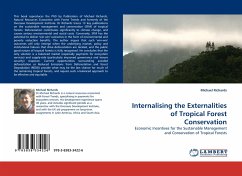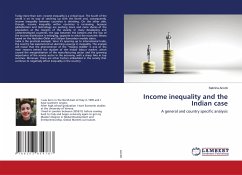
The Externalities from a Foreign Rule on India and Japan:
A Study of the Correlation Between Economy and Culture
Versandkostenfrei!
Versandfertig in 6-10 Tagen
32,99 €
inkl. MwSt.

PAYBACK Punkte
16 °P sammeln!
India s economy after the British Raj changed drastically in comparison with its economic standings preceding the conquest. Reasons for the initial economic downturn could have been due to various factors, such as globalization or a lack of modernization. However, after further assessment one can find vital cultural implications arising from the contact between the two disparate and mutually adverse cultures. In contrast, further exploration of the relationship between economy and culture will be revealed through the positive externalities that ensued from the Allied Powers occupation of Japan...
India s economy after the British Raj changed drastically in comparison with its economic standings preceding the conquest. Reasons for the initial economic downturn could have been due to various factors, such as globalization or a lack of modernization. However, after further assessment one can find vital cultural implications arising from the contact between the two disparate and mutually adverse cultures. In contrast, further exploration of the relationship between economy and culture will be revealed through the positive externalities that ensued from the Allied Powers occupation of Japan after World War II. These two studies exemplify the importance of further research regarding culture and its impact on a society. They also connote the significance of culture as a powerful and relevant economic indicator. From these unforeseen outcomes after the foreign occupations of India and Japan respectively, it is proposed that culture can no longer be treated as a separate, static entity. A broader understanding of external cultural influences and their impact on a civilization s economic endeavors and indigenous culture is imperative as the world becomes increasingly interconnected.












